2021 Joint Commission Ambulatory Survey: Tips and Resources
If you’re a Joint Commission accredited healthcare facility manager, then be prepared for a visit. The JC ambulatory surveys occur once every three years, visiting thousands of ASC’s on-site to check quality and safety processes and standards.
Resources such as the Joint Commission 2021 Comprehensive Accreditation Manuals are expensive and wordy. Since inspectors may arrive with little notice, it’s best to stay up to date with TJC ASC compliance.
Who is eligible for the ambulatory survey?
According to The Joint Commission website, the following medical facilities should be on alert for an inaugural survey:
- Ambulatory Surgery Centers (ASC’s)
- General hospitals
- Psychiatric hospitals
- Pediatric care
- Dentistry
- Rehabilitation clinics
- Detox clinics
- Pharmacies
- Clinical labs
- Hospices, including home care
- Nurses
- Medical imaging centers (MRI, CT)
- Radiologists
- Anesthesiologists
Visit the Joint Commission site
Some resources to help you prepare for a visit from inspectors are available at the Joint Commission Website. The 2021 Comprehensive Accreditation Manuals can be purchased for $329.00 – $999.00.
Too pricey? An abridged version is available for $169.00 – $179.00. (Take note that the shorter version does not include chapters with accreditation process information, such as summaries and policy information.)
A free survey guide tells you what to expect on the big day, including a sample agenda plus documents and other information that you’ll need to pass your inspection.
Walking you through the Joint Commission Ambulatory Survey
The two main goals of the survey include:
- To evaluate your healthcare facility’s compliance with Joint Commission ASC standards
- To educate and therefore improve the standards of ambulatory centers around the country
Healthcare organizations wishing to acquire accreditation and certification with The Joint Commission will be graded for compliance primarily in the following areas:
- Infection Control: sterilization and disinfection practices, decontamination protocols and general housekeeping standards
- Environment Care: indoor air quality, temperature, and humidity, especially in relation to sterile medical supply safety
- Life Safety: Fire safety compliance and medical staff evacuation training and drills
- Human Resources: efficient documentation of medical records, continual training, and assessments of medical bookkeeping staff
- Medication Management: protocols established to prevent mishandling of medications, security standards
- Record of Care: post-surgery patient assessment documentation compliance
To wrap it up…
Most likely, you’ll pass with flying colors. Educate your nursing staff, maintain good hygiene per OSHA standards, and keep updated medical records.
Photo by camilo jimenez on Unsplash
